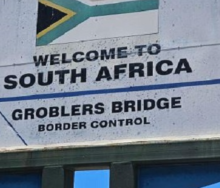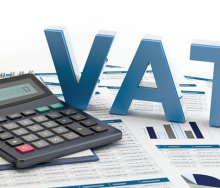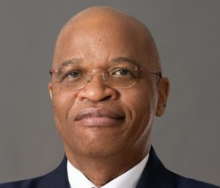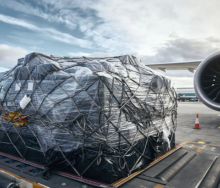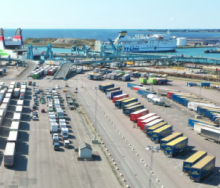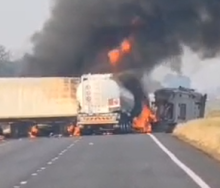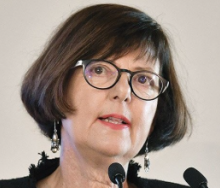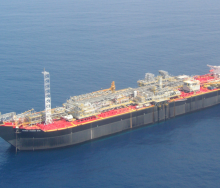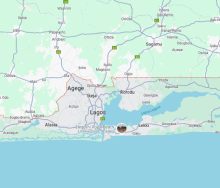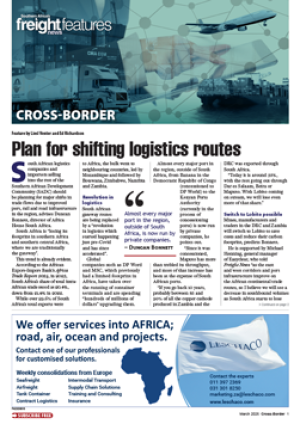Finance minister Enoch Godongwana must use the opportunity presented by the upcoming Budget to announce a review of import tariffs and timelines on urgent pro-growth reforms, including the government’s plans to improve the logistics efficiency of ports and rail operations.
This is according to Democratic Alliance finance spokesperson Dr Mark Burke, who said in a statement ahead of Godongwana’s budget speech on Wednesday that the government should seize the opportunity to move ahead with reforms, including announcing further port concessions, coupled with clear timelines to improve efficiency and reduce costs, particularly for the Ports of Cape Town, Richards Bay and Port Elizabeth (Gqeberha).
Burke said the government should also introduce timelines for concessioning specific freight rail lines to private operators to increase capacity and lower transport costs.
Transnet’s recently published Network Statement opens up opportunities to commission freight rail lines to be run by private operators while the infrastructure remains the property of the state-owned entity.
He also called for the government to set a definitive date for a competitive energy market, granting private producers full access to the grid and enabling market-driven electricity pricing.
He said there should be no further bailouts for state-owned enterprises (SOEs) such as Transnet and Eskom.
“Bailouts to failing SOEs have driven excessive borrowing and debt, leading to a situation where debt service costs are crowding out critical investment spending and resulting in shortfalls to education, healthcare, and other critical functions,” Burke said.
“It is time to declare the end of SOE bailouts and force SOEs to stand on their own or face privatisation where they fulfil a critical function, or closure if they do not.”
Burke said it was also time for a complete overhaul of the company’s import tariff rules, which are hampering growth in the manufacturing sector.
“Multiple critical manufacturing inputs are subject to a stringent tariff regime, making manufacturing in South Africa uncompetitive. A major review of the tariff regime needs to be completed to drive manufacturing and export growth urgently.”
He said the government should also undertake a full review of its red tape and regulations across departments “to eliminate frictional costs to the economy, eliminate unnecessary bureaucracy that slows investment, lowers costs, and remove delays that hinder business growth”.
“The state needs to move to a system of equity equivalence in key sectors such as ICT in order to attract stronger FDI inflows and create jobs, while benefiting local communities through upliftment programmes and other such initiatives.”
On the issue of raising taxes Burke said the party strongly opposed any tax increases and did not support increases to personal income tax, corporate income tax and value added tax.
“The cost-of-living crisis over the last several years has squeezed households, many of whom are struggling to put food on the table. Even Cosatu has warned against hikes to income tax and VAT. Any tax increases will face widespread resistance – not only from parliament but also from within the Government of National Unity.”
He said the Budget should be a turning point for the economy and demonstrate a commitment to serious, fast-tracked reforms towards growth.
“After a decade of sluggish growth and an unsustainable debt burden, the 2025 Budget must be built on the best ideas from within the Government of National Unity, as South Africa cannot afford more of the same.”
He said he expected the budget to focus on unlocking infrastructure investment, policy reform that resulted in private-sector job growth and improved efficiency through structural reforms.

